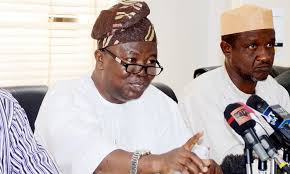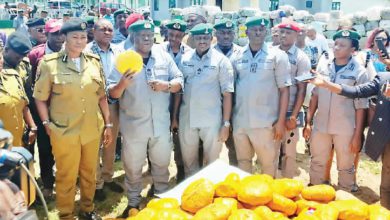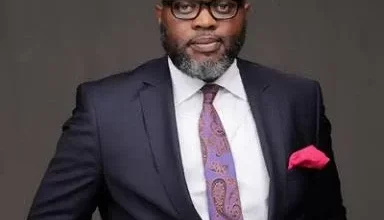
- The Academic Staff Union of Universities on Monday began a two-week strike to press the Federal Government to implement its 2019 agreement and resolution.
The Academic Staff Union of Universities on Monday began a two-week strike to press the Federal Government to implement its 2019 agreement and resolution.
Also, the University of Port Harcourt branch of the union described as “all deception” the claim by the Federal Government that lecturers who refused to enrol on the Integrated Payroll Personnel Information System would not be paid their salaries.
The Chairman of UNIPORT ASUU, Dr Austen Sado, warned that there would consequences should they find out that the lecturers were not paid based on the IPPIS controversy.
ASUU has been at loggerheads with the Federal Government over the introduction of the IPPIS in October last year to ensure transparency in salary payment.
But ASUU kicked against the IPPIS on the grounds that that it was in gross violation of the autonomy of universities as enshrined in the Universities (Miscellaneous Provisions) Amendment Act 2003.
The Federal Government insisted all members of the union must be enrolled on the platform just like other government employees.
In its communiqué at the end of its two-day National Executive Council meeting at the Enugu State University of Science and Technology read by its National President, Biodun Ogunyemi, at a press conference at Dannic Hotel, Enugu, ASUU said the strike was to compel the FG to implement the outstanding agreement and resolution of it Memorandum of Action it had with the union in 2009, 2013, 2017 and 2019.
Ogunyemi said, “Having discussed the provisions in the 2009 ASUU-FGN agreement, the 2013 Memorandum of Understanding and the 2017 Memorandum of Action, which have not been implemented, NEC resolved to embark on a two-week warning strike with effect from March 9, 2020 to compel the government to implement the agreement and resolution.”
The union said by meddling in the internal affairs of the Nigerian university system, the FG would be eroding the autonomy of the universities and making them incapable of fulfilling their mandates.
The union chief added, “The needless siege of the Nigerian university system through the imposition of policies will only compound the woes of the universities, will ultimately further drag Nigeria into a morass of chronic underdevelopment.
“The persistent poor funding characteristic of state-owned universities portends a collapse of the system. It is even more disheartening that many states that cannot adequately fund their existing universities are establishing new ones for political gains.”
Ogunyemi decried the security challenges facing the country, saying ASUU was not happy about the situation.
He said, “ASUU calls on the Federal Government to, as a matter of urgency, overhaul the nation’s security architecture. The failure of the Federal Government to ensure the safety of citizens has led to the emergence of sporadic security outfits. This is a sign that the Federal Government has failed to protect Nigerian citizens as stipulated in the constitution.”
Although the body is against all forms of sexual harassment, it faulted the Sexual Harassment Bill. Ogunyemi said, “The attempt by the National Assembly to enact a law that seeks to criminalise a section of society and is targeted specifically against tertiary institutions violates the rule of jurisprudence that law should not be targeted at specific persons or group. It is discriminatory and against the principle of natural justice.
“Sexual harassment can occur in all forms of human relations – in religious, in legislative houses, among security officers and in all workplaces.”
Sado told reporters that a telephone interview that they would wait for the ASUU congress that likely to hold on Wednesday to get information on the next line of action.
He said, “It is all deception to say that those who did not register for the IPPIS won’t be paid their salaries. They need to tell us the true state of our economy. Have they paid those on the IPPIS? Nobody should hide under the IPPIS issue not to pay us.
“We don’t have to meet physically on the IPPIS. Once it is clear to us that members have not been paid on account of non-registration, there will consequences.
“Many of the organisations that have enrolled on the IPPIS since last year; have they paid them February salary? Nigerians should begin to ask this government questions about its sincerity with the management of the economy.
“The reason we are waiting is that those who have enrolled on the IPPIS and those who did not enrol have not been paid. That is why they should tell us the true state of our economy and the true reason why they have not paid salaries.”



